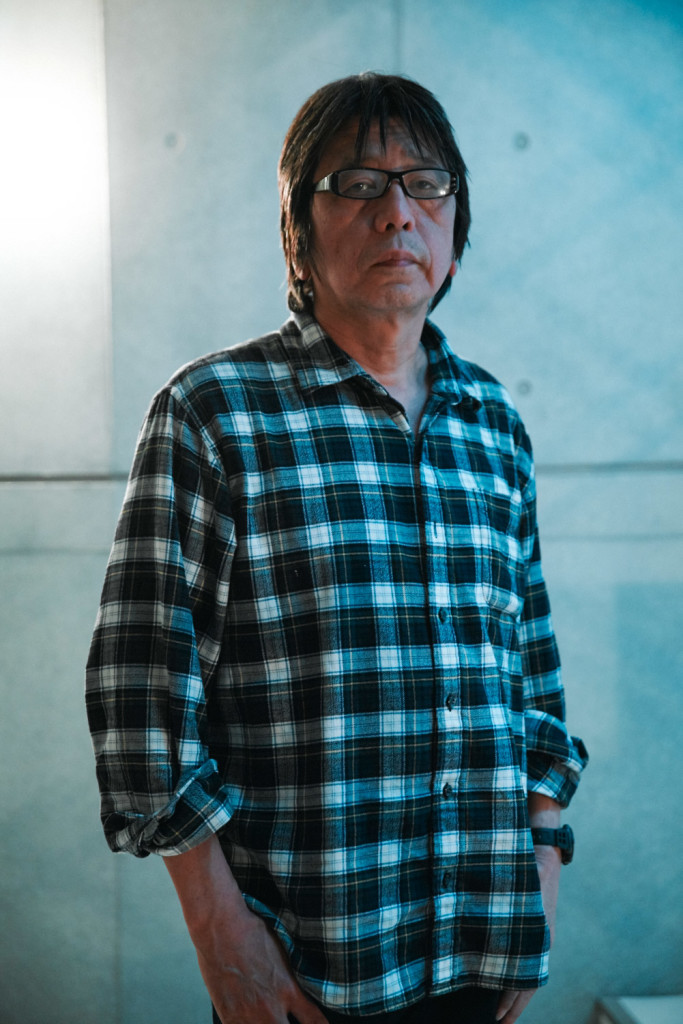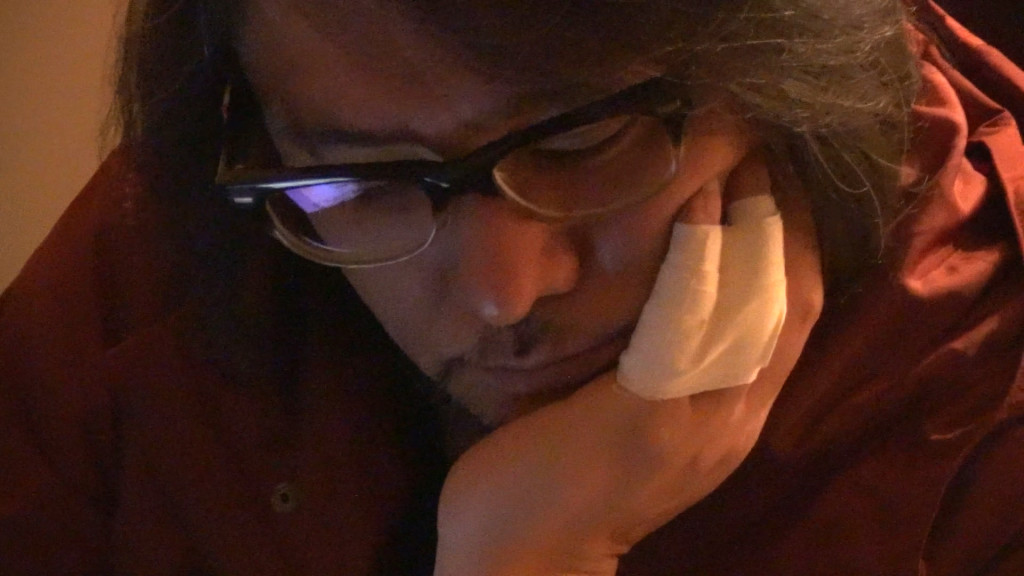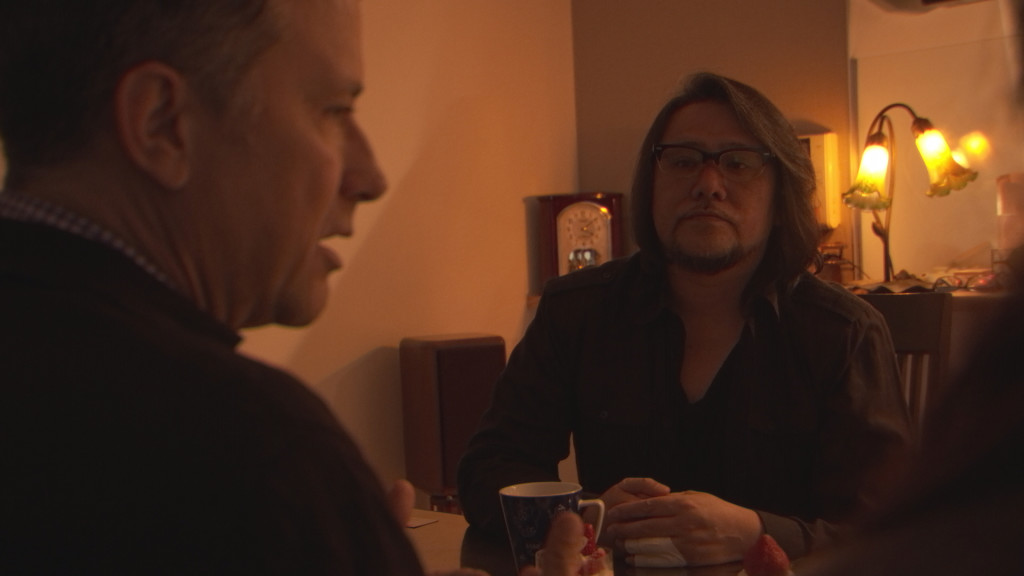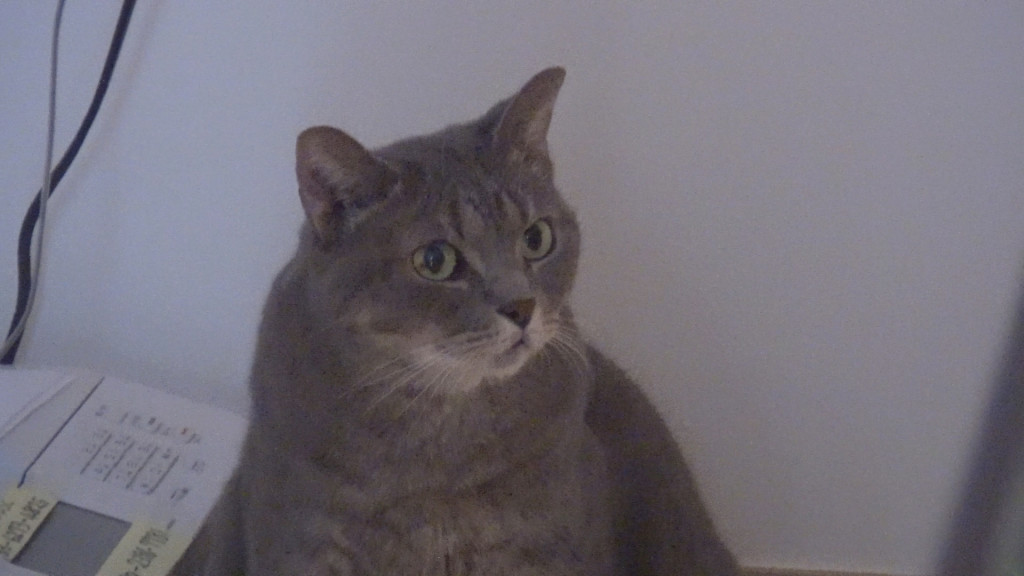映画『FAKE』森達也監督インタビュー。

多くの映画(だけに限ったことではないが)には宣伝文句とも言い換えられる枕詞のようなものがつきまとう。未見の人を煽り、引きつかせる派手な言葉、人名。キーワードであるそれらに採用される理由は認知度、リテラシーの高さを最優先にしていると考えられる。今や一億総メディア社会だ。シェアがしやすい単純な物事の方が、輪は広がりやすい。『FAKE』の主人公である佐村河内守氏は、人を集めやすい格好の素材であると言えるだろう。しかし、佐村河内氏の自宅が主な舞台である劇中、様々な人が訪れるのだが、そのなかで最も冷静さを保っていたのが森達也監督だった。「元々興味はなかったが、最初に会った時に、これは映画だと思った」。これはインタビュー冒頭の森監督の発言だ。『FAKE』におさめられた佐村河内氏の姿は、あの、お茶の間を賑わせペテン師と騒がれた(似非)作曲家とは異なる。妻の香さんと淡々と生活を送る一人の夫であり紳士的な男性である。
メディアの報道を覆す内容も繰り広げられる『FAKE』。信じるも信じないも観る人次第だ。
Photo_Ryo Kawanishi(Portrait) | Text&Edit_Yusuke Osumi

森達也
1956年、広島県呉市生まれ。立教大学在学中に映画サークルに所属し、自身の8ミリ映画を撮りながら、石井聰亙(現在は岳龍)や黒沢清などの監督作に出演したりもしていた。86年にテレビ番組制作会社に入社、その後にフリーとなるが、当時すでにタブー視されていた小人プロレスを追ったテレビ・ドキュメンタリー作品「ミゼットプロレス伝説 ~小さな巨人たち~」でデビュー。以降、報道系、ドキュメンタリー系の番組を中心に、数々の作品を手がける。『FAKE』は『A2』以降、15年ぶりの新作。
ドキュメンタリーは、現実に翻弄されることが面白い。
――まず、佐村河内さんとしばらくの期間、対峙された印象をお教え頂けますか。
森監督(以下、敬称略):時間が経っても最初の印象から変わりませんでしたね。
――具体的にはどういう……
森:とにかく腰が低くて、色々な事に気を回したり、人に気を使ったり。
――確かに。劇中、かなり気を張っている様子が見受けられました。しかし鑑賞させて頂いた後、今一度“FAKE”というタイトルであることを念頭に置きながら回想すると、その“様子”、あれやこれやが実は作り物なんじゃないか……という疑問が生まれました。
森:まあ、映画かどうかは関係なく、人って演技をするじゃないですか。本当の素なんて撮れるわけがない。そういった意味では作り物という考えでもいいんじゃないですか。でも、映画のために僕は仕掛けたり、挑発したりはしますけれども、こちらが作っちゃうと撮ってて面白くないですから。ドキュメンタリーっていうのは現実に翻弄されることが面白いんで。なので、作り込みはないと思ってもらって大丈夫ですよ。
――なるほど。それをお聞きできて少し安心しました。

(C)2016「Fake」製作委員会
髪をばっさりと切った“あの”会見から半年以上が経過した昨年末。以前の風貌に戻り、現在は自宅に引きこもっている佐村河内氏。
森:ただ、彼も表現者ですから、業の強いところももちろんあるし、それが時折、垣間見えるんです。人間は一色じゃなくて、様々な色があってこそ、(その人の)日常、世界が生まれます。それがメディアによってどんどん一色にされてしまう。その結果として、空は青で、葉っぱは緑、雪は白になる。端数やあいだの領域が消えています。それは世界とはかけ離れている。
――それによって、良し悪しだったり、正解、不正解の判断がつかなくなってしまっているように感じます。隠されている真実が本当はたくさんあるのにも関わらず、それを見ずに称賛と嘲罵が行われていると言いますか。なので、本質をとらえ続けている森監督のようなアクションを起こせる人はかなり少なくなってしまっているのでは……と考えています。
森:できなくはないはずですよ。ただ、テレビでやってしまったら視聴者から抗議がくるかもしれないし、そもそも視聴率が取れないでしょうね。だから皆やらない。
どんな表現もニュースも、必ず誰かを傷つける。

――メディアに対して投げかけていることはあるんでしょうか。
森:メディアというか、まず社会に対してだけど、(メディアが物事を整理整頓してしまうという)リテラシーはちゃんと持った方が良いと思うんですね。メディアは何故単純化するかというと、それはわかりやすくするためですよね。そうしないと皆が観てくれないし、長くて分かりづらかったら嫌厭してしまいますから。わかりやすくすることは当然と言えば当然なんだけど、それが進み過ぎると四捨五入ですよね。端数はどんどん削られてしまう。それを理解しておいた方がいい。
――佐村河内さんの事件に関しても、そういったことが言えますか。
森:聴覚障害っていうのはグラデーションがものすごくあるわけです。佐村河内さんの耳は聴こえる音と聴こえない音があって、体調によっても変わってきます。彼は口話(口の形で言葉を判別する)ができますが、親しい人だとわかるけれど初対面の人だと理解が難しい。先に言ったように、メディアは物事を単純化しますから、その“グラデーション”は複雑でわかりにくい。その結果、聴こえるか聴こえないかっていう二択にしてしまう。
次にメディアに対しては、自分たちが加害装置であることを自覚した方がいい。今回の僕の映画もそうだけど、表現をするということは絶対に人を傷つけます。ニュースもそうですよね。それは逃れられない。だから止めるとか萎縮するということではなくて、時には自分たちはそういう仕事をしているんだということを意識すべきです。つまり後ろめたさ。メディアはこれを忘れてはいけない。
――では、森監督は佐村河内さんを取材するにあたり、どういう姿勢でのぞまれましたか。
森:姿勢? 今のご質問は被写体とどういった距離感で対峙したのかっていうことだと思うんだけど、そういう質問に対する答えはいつも決まっていて、距離なんてコントロールできるもんじゃないから、家族との距離、友人との距離、佐村河内さんとの距離っていうのはそれぞれ違う、としか言いようがないですね。よく距離が近づきすぎたらいけないとか言う人いるけど、近づいたら距離を取ればいいだけのこと。僕は佐村河内さんよりも悪党ですから、親近感をもってもらえたらこういうシーンが撮れるなとかは考えてしまいますが。

C)2016「Fake」製作委員会
劇中、メディア関係者、海外のジャーナリスト等が多数、佐村河内氏の自宅を訪れていた。ちなみに、『A』『A2』は画が弱点だったと語る森監督は、『FAKE』で日本のドキュメンタリー作品における巨匠カメラマン、山崎裕さんとタッグを組み撮影を行った。
臆せず、どんどん笑って欲しい。

――佐村河内さんの奥さんに対してはどういう印象を抱かれましたか?
森:(逆に)どういう印象を受けました?
――何というか……守さんに対する愛を感じました。素直に観れば。
森:それでいいと思いますよ。
――以前、テレビで奥さんの親が出てきて「早く帰ってきて欲しい」と懇願している場面を観たんです。てっきり(奥さんが)精神的に参ってしまっていたりするのかなと思っていたところ、実際の姿はそのほぼ真逆で……。
森:悲壮感がないわけではないんだけど、それをあまり表に出すタイプではないですね。
――辛そうだな、って思われた瞬間はないですか?
森:(佐村河内さんの)耳が聞こえていると、皆に思われているのが悲しいって言っていた時かな。僕がいない時はわからないですよ。でも、少なくとも僕がいた時は常に冷静でしたね。彼らは夫婦なんだけど、それと同時に姉と弟のような感じもしました。
――そうですね。あんなに仲睦まじい夫婦の姿を映画館で観ることもそうあることではなかったので、なんだか心地さを感じました。
森:確かに、香さんじゃなかったら、とっくに破たんしていたかもしれない。それはそれでひとつのストーリーです。

(C)2016「Fake」製作委員会
見事なタイミングで挿し込まれ、鑑賞者の笑いを誘う佐村河内氏の飼い猫。ちょっと太った愛くるしい姿は佐村河内氏が醸す雰囲気と妙に重なり合う。
――佐村河内さんの事件は大きく取り沙汰されたニュースでした。にも関わらず(試写会時に)お客さんから笑いが起きました。
森:笑いは大事です。『A2』なんかはコメディ的に作っているんだけど、今回もそうですよね。ただ、人はおかしいから笑うだけじゃない。緊張している時に笑いたいと思うこともあって、笑いはガードを下げるんです。演劇なんかそうですよね。結構なドタバタで皆、大笑いしながらもテーマに共鳴しちゃうという部分がある。『FAKE』を観て笑った人はコントを観て笑う感覚とは違うはずですよ。笑いながらも苦虫を噛み潰したり、どこか引っかかったりしているはずなんで。
――日本の映画館って、笑いは禁物というような妙な緊張感があるように感じるんです。
森:家で一人で観ていたら、そんなにゲラゲラ笑わないんじゃないかな。映画館になぜ行くかって、単純にスクリーンが大きくて音がいいだけじゃなくて、たくさんの人が一緒にいるっていうことが大事で、他の人との共有意識が芽生えることで感情が増幅されるんですよね。なので、臆せずどんどん笑って下さい。
FAKE
会場=渋谷ユーロスペース、横浜ジャック&ベティにてロードショー、ほか全国順次公開
日程=2016年6月4日(土)より
また、6月18日(土)~24日(金)、7月9日(土)~15日(金)連日21:00より渋谷ユーロスペースにて『A2 完全版』も上映される。同作は、オウム真理教(現アーレフ)の広報副部長であった荒木浩と他のオウム信者たちにカメラを向け、オウム事件の本質に迫った森達也監督の代表作『A』の続編。
- Keywords:
- Japanese


